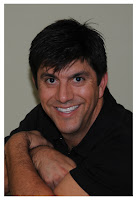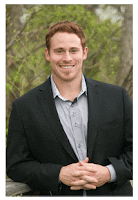The Times They Are A-Changin’
— Bob Dylan
No one will ever accuse
me of being a Bob Dylan fan. However, I've always loved that line. That line is
especially applicable to dentistry — it is a-changin’. That is probably not
news to anyone who is reading this. Some changes are good; others, not so good.
The challenge is to use these changes to your advantage.
Much has been written
about corporate-style dental practices. However, for all their perceived faults,
they have gotten one thing right: convenience. Believe me, your patients love
convenience. Corporate dentistry does one thing that most practices do not: Specialists
work inside their practices, not across town.
I became acutely aware
of this when a friend suggested I hire an oral surgeon to work in my office. He
was having great success with this concept and thought it also would work in my
office.
Admittedly, I was
hesitant at first. Would this actually work in my office, or would it turn out
to be a costly mistake? My staff also had reservations about bringing someone
new into the practice. To be honest, I have been amazed at the results. Thanks
to this one decision, last year was the best ever for my practice.
In my case, I hired an
oral surgeon. Depending on the needs of your particular office, you may hire a
different specialist. For example, I would never hire an orthodontist since I
have a great one practicing next door. Some of your practices are located in
medical buildings. You may have several specialists down the hall. However, in
my case, I am in a freestanding building that is home to three dental
practices. I’m the general dentist, while one neighbor is an orthodontist and
the other is a prosthodontist. However, any other specialist whom I may wish to
refer to is a drive away.
Here is where the
convenience factor comes into play: Your patients have no qualms about walking
down the hall to see the specialist whom you recommend. But ask them to drive
to an oral surgeon’s office across town, and that is another story. If you are
like me, you keep seeing your recall patients every six months, and you keep
asking them when they’ll be getting those impacted wisdom teeth taken out.
After telling you they’ve lost the referral slip, they ask you for a new one.
Six months later, you repeat this same scenario.
But once the patient
learns the procedure can be done at your office, he or she is eager to schedule
an appointment. You will be amazed by how quickly your specialist’s schedule
fills up. Since our oral surgeon is usually with us once a month, he is always
scheduled two to three months ahead of time.
A result of offering
in-house specialty services is that our treatment case-acceptance rate has gone
up dramatically. The number of implants I restore greatly increased. Why?
Again, patients want everything done in one place. If you are like me, you do
not place implants. Previously, I’d refer the placement to my local oral
surgeon. Most implants were never placed. Now, as soon as the patient learns
that everything can be done in my office, he or she schedules and completes
treatment.
Another benefit that
patients love: They don’t have to get to know a new staff. The same assistants whom
they’ve gotten to know will be with them during treatment. Patients love knowing
that when they recover from the IV sedation, they will wake up to a familiar
face. Also, all financial arrangements are made with the same staff members with
whom they are accustomed to discussing money and insurance.
My wife brought up an
unexpected benefit for the staff members that I had never considered. She told
them that I was giving them the gift of a lifetime. Should anything ever happen
to me, they would not only be able to work in a general dentistry practice, but
also in an oral surgeon’s office. I am making my staff twice as employable.
During an interview, if they were to be asked, “Have you ever assisted in a
sinus lift?”, they will be able to answer, “Yes.” Your motivated staff members
will see this as a gift.
Once the decision is
made to hire a specialist, where does a practice find one willing to travel to its
office? In my case, I went through a referral agency that places specialists in
dental offices. I have heard, though, that some of your existing specialists
are now joining the mobile office trend. They, too, see that the world is
changing and are attempting to keep up.
An orthodontist friend of mine who has been in practice for more than 25
years has begun traveling to dental practices in addition to keeping his
existing office.
In Part 2 on this topic,
we’ll discuss some other things to consider when bringing a specialist into
your office, including challenges that have come up.
Andy Alas, DDS








